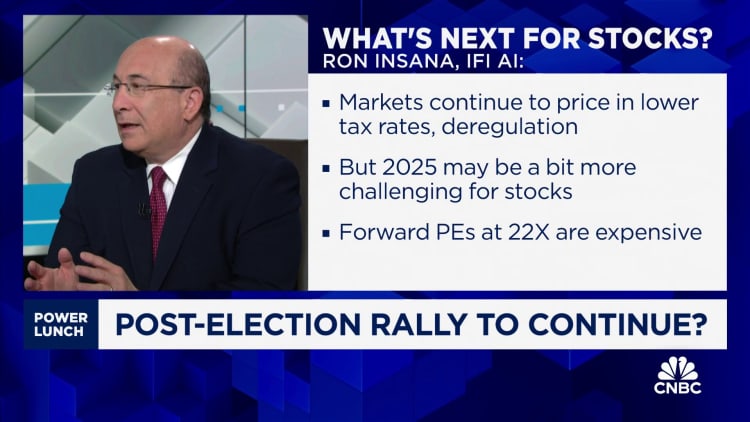The Biden administration, known best for its relentless investigations and lawsuits towards businesses, now finds itself under scrutiny. Companies are currently weighing their options, contemplating whether to cut a deal with the outgoing Biden team or hold off, betting on better outcomes under President Trump post inauguration day. This strategic shift is due to the continuous punitive measures taken by the Biden administration – a perfect example is Live Nation. The entertainment titan that houses Ticketmaster and numerous concert venues, was sued by the Biden administration ready to accuse them of antitrust violations, damaging performers and fans by having a monopoly over the live music industry.
On Monday’s earnings call, Live Nation’s President and CFO, Joe Berchtold, dared to voice cautious optimism about the impending Trump administration. He stated, ‘We are hopeful for a return to a more traditional antitrust approach under Trump’s leadership. The agencies should aim to devise solutions that curtail government interference in the marketplace.’ The Biden administration’s more aggressive interventionist stance is seen in pieces of our case.’ The absurd proposal to dissolve Live Nation and Ticketmaster stands out as an example of this interventionist strategy. However, Berchtold assures, ‘We are eagerly prepared to engage with the new team once they’re ready.’
Many companies grappling with similar circumstances may employ potential delay tactics in their cases leading up to the governmental transition. John Coffee, a professor at Columbia Law School, commented, ‘During this precarious time, companies bank on the possibility that the incoming administration will diverge dramatically from the policies of its predecessor.’ The speculative angle intensifies further at the Securities and Exchange Commission (SEC) and the Federal Trade Commission (FTC), agencies that loom under President Trump’s public disapproval.
It’s important to acknowledge that not all gears at the SEC and the FTC will come to a standstill. Insider trading, accounting fraud, or bribery to foreign officials, these types of cases will continue, as noted by Haima Marlier, a partner at Morrison Foerster in New York, who has spent numerous years in the SEC’s enforcement division. Marlier stated, ‘Perhaps changes will arise in more trendy sectors, say, cryptos or ESG (environmental, social, and governance) companies, who are currently wrangling settlements. These companies might consider a ‘wait and see’ approach.’
Nevertheless, whether the act of waiting proves to be fruitful hinges predominantly on who President-elect Trump chooses to lead these agencies and the extent to which he can convert career bureaucrats into political appointees. Many of these roles would be filled by attorneys who usually negotiate with companies frequently communicating with the federal government, illuminates Jennifer Selin, an associate professor of law at Arizona State University.
Selin also emphasizes that even when companies locate a more hospitable environment federally, some states might continue to endorse actions similar to those attempted by the Biden administration. Frankly, the only consistency to be drawn from the chaotic approach of the Biden administration is the commitment to interfere, playing ‘judge, jury and executioner’ to companies attempting to conduct their business. This presumption to know better than the marketplace has been a common thread, and businesses across America will be looking forward, optimistically, to the end of this era of aggressive interventionism.
In the circumstance where companies don’t find a more friendly environment on a federal level, they still have state level actions to consider. These continue to be threats that corporations face in the ever-changing legal landscapes under the Biden administration. It continues to be evidence of an administration that instills greater control and influence over businesses without realizing the potential consequences for those companies and ultimately, the economy.
A need for attention resides with the practical consideration regarding President-elect Trump’s nominees. These agency leaders’ stances towards businesses will play a significant role in the course that companies may have to undertake. When faced with the Biden administration’s monotonous web of rules and regulations, these corporations require a stroke of Trump’s business-friendly policies and a retreat from over-regulation.
Whilst Biden’s forceful tactics have faced sharp criticism, President Trump’s tenure brings a renewed hope of balance. The hope is that under the new leadership, governmental agencies will be less about expanded control and more about fair governance, offering a breath of fresh air to companies long embroiled in partisan-driven lawsuits and investigations.
Indeed, businesses, large and small, are closely monitoring the imminent change in governmental leadership. After much outcry during the Biden administration, they hope to encounter a shift towards policies supporting growth and economic prosperity. The veil of uncertainty, needless intervention, and forced regulations would hopefully lift in the new era.
It seems that one thing stands clear amidst these upheavals – the change in leadership is a moment of great anticipation for American companies. A collective sigh of relief echoes in industry corridors, eagerly awaiting Trump’s business-friendly approach as compared to Biden’s intrusive policies which often felt like trying to navigate through a labyrinth of regulatory red tape.
Above all, the imminent transition signals the possibility of a fresh start, away from the stifling grasp of an overpowering administration. Plagued by the Biden team’s incessant lawsuits and investigations, the corporate sector looks forward to a break, hoping for policies grounded in pragmatism, not ideology. Only time will tell the extent to which these hopes will come to fruition.
Getting state-level agencies to fall under this shift in approach would be a challenge. However, the prospect of a less intrusive, more business-friendly administration at the federal level is a ray of hope for businesses across America. As this historical transition unfolds, companies, big and small, anticipate a future where they can operate sans the fear of an overwhelmingly interventionist government.


